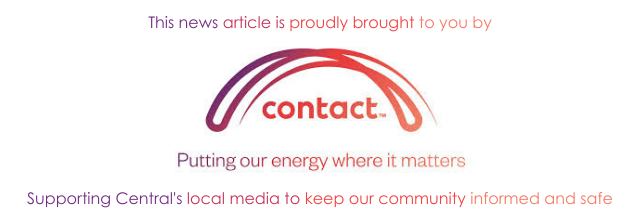More than words: Journalism for our whole community
Mary Hinsen
04 December 2020, 11:04 PM
 Bias in reporting is a hot topic at the moment for all media. Image by Mushki Brichta via Wikimedia Commons.
Bias in reporting is a hot topic at the moment for all media. Image by Mushki Brichta via Wikimedia Commons.Ethical reporting and, in particular, bias when reporting on issues relating to Māori and Pasifika are currently hot topics in the media.
Rowan and I thought we would let you know how we find, investigate, select, and report on stories at The Central App.
There is a saying that stems from the marae: ‘If you want to help, start by doing the dishes’. As a team, we always strive to do better in a way that is real.
We try to focus our continuous improvement on what matters to our community.
As a media service for our community, we first look back and acknowledge the tangata whenua.
To give you one small example of how we apply this value, when reporting on community initiatives of planting native species throughout this year, I sought information on our landscapes prior to European settlement and subsequent changes to flora and fauna due to colonisation.
By including relevant historic context around current initiatives, we work to achieve balanced reporting that respects our tangata whenua and informs our readers.
With te Reo Māori being one of our three official languages here in New Zealand, we are already working as a team to improve our use of te reo where appropriate.
I grew up in a home where te reo was spoken by my mother. I was not encouraged to learn te Reo Māori, but mine was a different generation.
This year, I completed the course in te Reo Māori with Central Otago REAP as part of my professional development.
We are both now working to bring local place names, commonly used words, phrases and contexts into our writing.
As journalists, Rowan and I have a duty to uphold the Treaty of Waitangi.
The principles of Te Tiriti o Waitangi are commonly grouped as partnership, participation and protection.
In order to partner with the people in our communities and to ensure relevant participation, we first need to understand our communities.
Looking further than our own personal networks to minimise unconscious bias in our reporting, Rowan and I always turn to documented evidence.
The 2018 census showed the ethnic makeup of Central Otago as 91.9% European, 8.4% Māori, 2.3% Pasifika, 2.7% Asian, and 1.9% other. We also constantly look at other aspects of our community demographic.
The Central App has been downloaded by 97% of the Central Otago community, so published statistics are a good guiding measure for us.
We constantly use this information to review and ask whether we are truly representing our communities in what we report, how we report and who we talk to.
We always aim for a balance of views. We reach out for comment, but not everyone chooses to comment for media.
Protection is also a strong value for us. One of our key questions when deciding whether to publish a story, is first to ask: Will it help or harm?
For this reason, we will only publish public debate from social media if it can be backed up by evidence. We will only publish information about serious car accidents if it affects our roads.
News doesn’t have to be sensational – it has to be truthful, relevant and informative.
As a team, we are always striving to be better. The culture here at The Central App is such that we acknowledge where we need to improve and seek solutions together.
This has given both of us a better perspective on journalism, and a greater appreciation of multi-perspective storytelling.
We don’t always get it right. There is always more we can do, and you will keep seeing changes as we identify areas for improvement and try new solutions.
We might not shout each new thing we do from the rooftops, but be assured, we are always working to be the best we can for the community we both write for and live in. We are doing everything we can to work with our community to be a little bit better every day.



